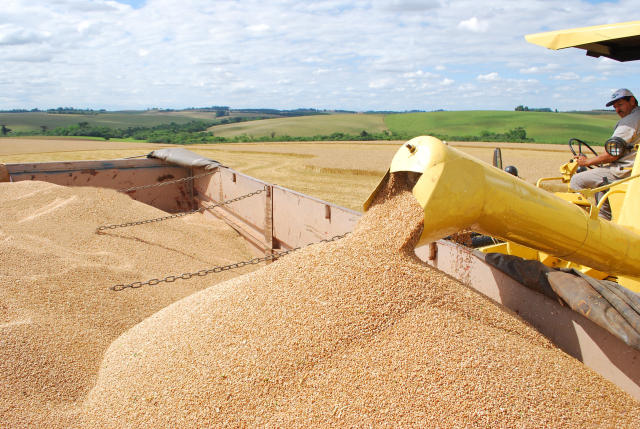São Paulo – In January, wheat and meslin exports from Brazil to the Arab countries fetched USD 26.78 million, a record-high since 2017. They reached 124,715 tonnes, and top buyers were Saudi Arabia and Palestine. The figures are from the Market Intelligence department of the Arab Brazilian Chamber of Commerce (ABCC).
According to consulting firm Tendências agribusiness analyst Felipe Novaes, the record high is part of a wider context. Factors include the Brazilian supply, which is high due to the harvest period, as well as the dollar appreciation, which makes the Brazilian product more competitive. There’s also a high demand in the North Africa and Middle East (MENA) region and a smaller supply from major producer countries.
On the Arab consumption, Novaes points out that the growth has occurred since last year. “From 2020 to 2021, the United States Agriculture Department (USDA) forecasts an average increase of 2.5% a year in consumption in the MENA region, where the Arab countries are,” he told ANBA. The rate is higher than it has been for the last five years, when consumption in the region grew by an average of 1.1% a year.
According to the USDA, to meet its consumption needs the MENA countries must import more wheat. From 2020 to 2021, the average growth in purchases is expected to reach 4.6% a year.
- Find out more on Agribusiness
As for production, Brazil came from a decrease in production due to climate problems that harmed sales in 2020. This year’s campaign, though, has recently recovered in exports. “The current campaign’s wheat has been less burdened, so producers can enjoy this window of opportunity to export with a high dollar value, as this time of the year sees more wheat available in the market,” he said, pointing out that the domestic supply is expected to climb 24.9% according to a CONAB survey released earlier this month.
The coronavirus pandemic has also impacted wheat sales around the world. “Some major wheat producing countries are hinting they are going to implement tax and non-tax barriers, as the pandemic has increased concerns regarding food security across the world,” he explained, mentioning countries such as Russia, Ukraine and Argentina. Novaes believes the nations tend to prioritize the domestic food security, thus decreasing exports.
Domestic market
In Brazil, figures from the Center for Advanced Studies on Applied Economics of the University of São Paulo (CEPEA/USP) show that the wheat price is on the rise this month due to the low supply. The reason is the foreign demand, too.
Despite the high wheat availability, sellers are focusing on the foreign market. “Domestic producers have anticipated that a large part of the produced volume will be sold, which has been seen in the sharp increase in exports in December 2020 and January 2021, whose volumes were five and three times higher than the previous year,” he pointed out.
Translated by Guilherme Miranda




